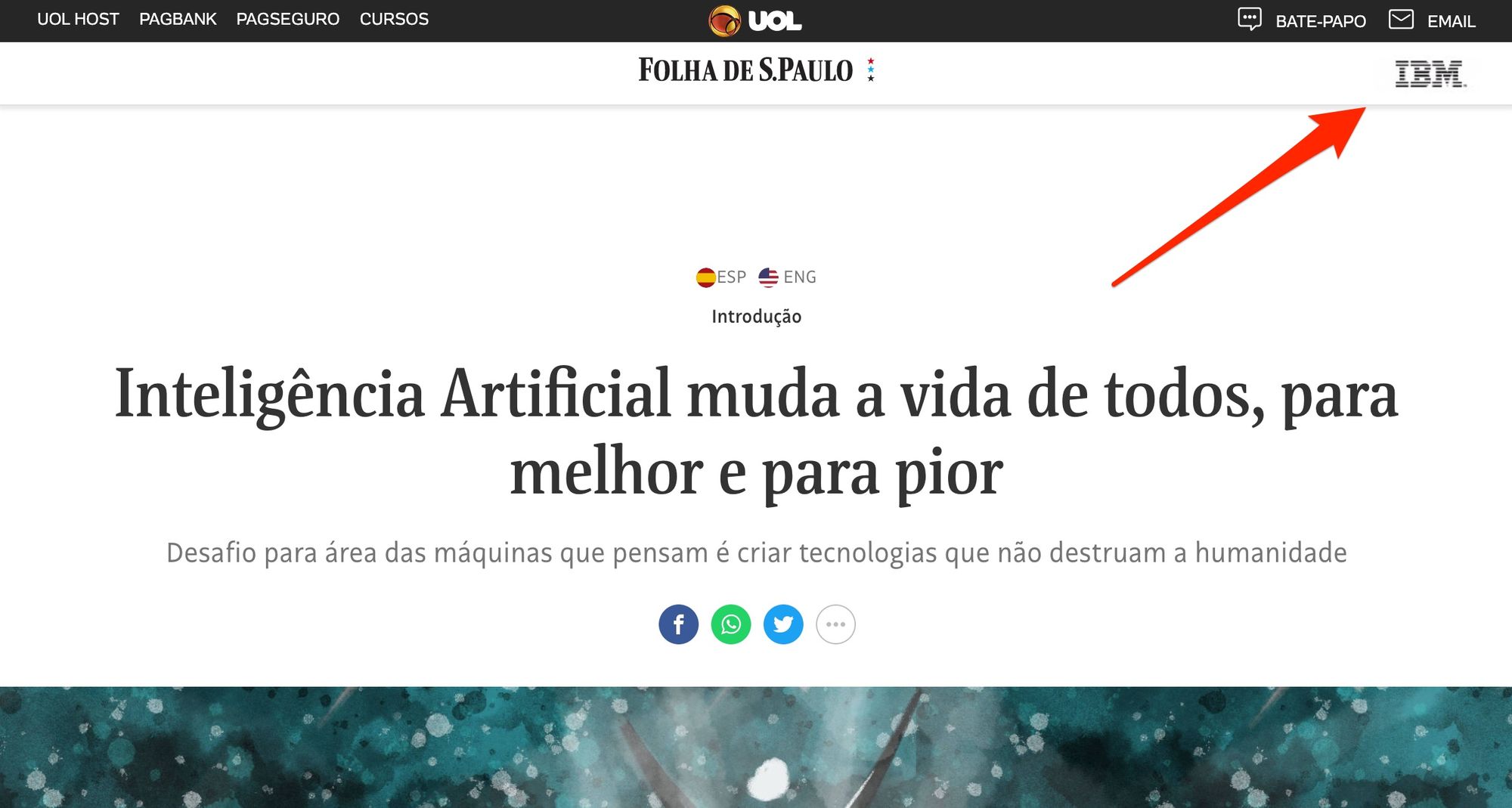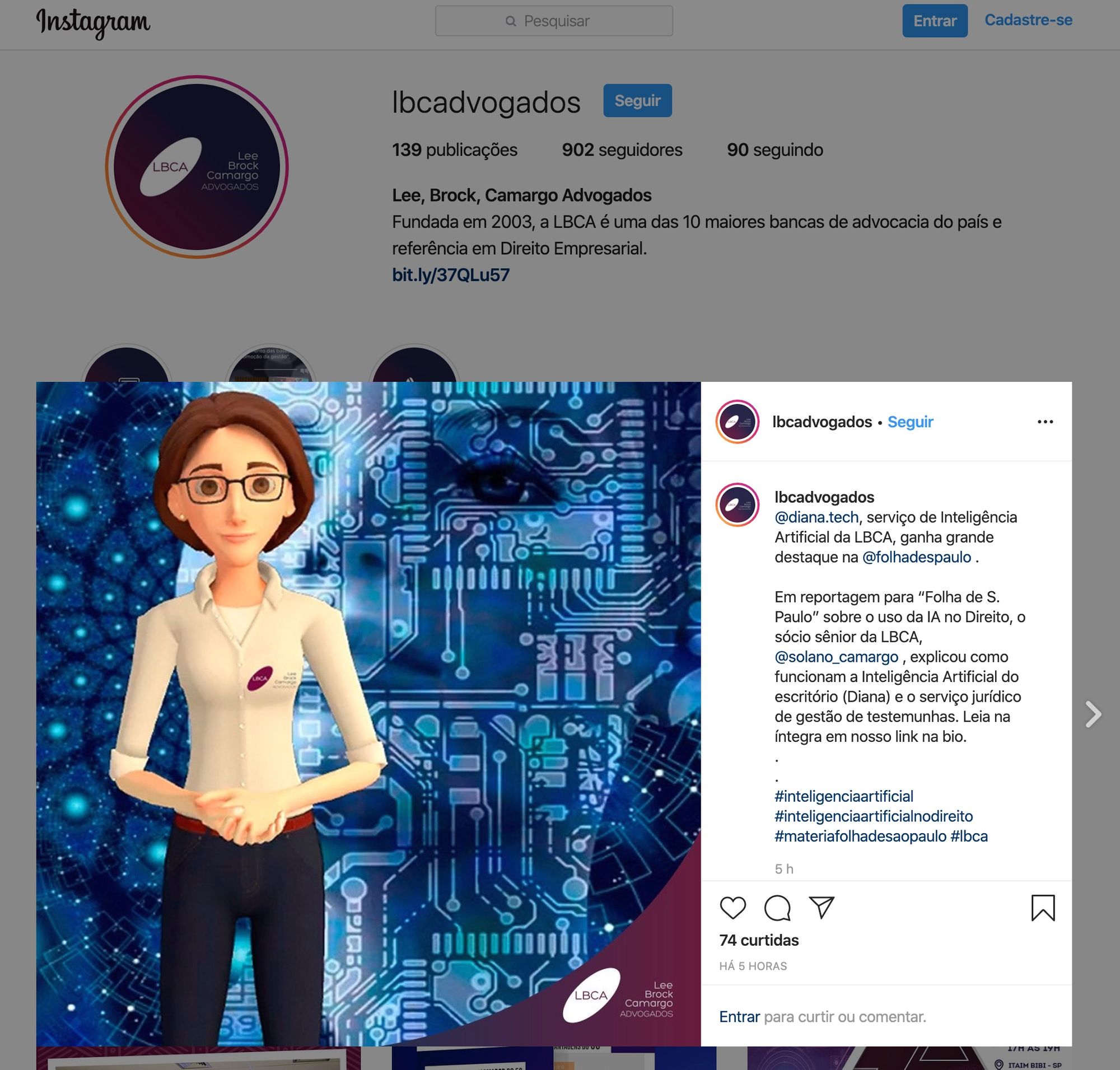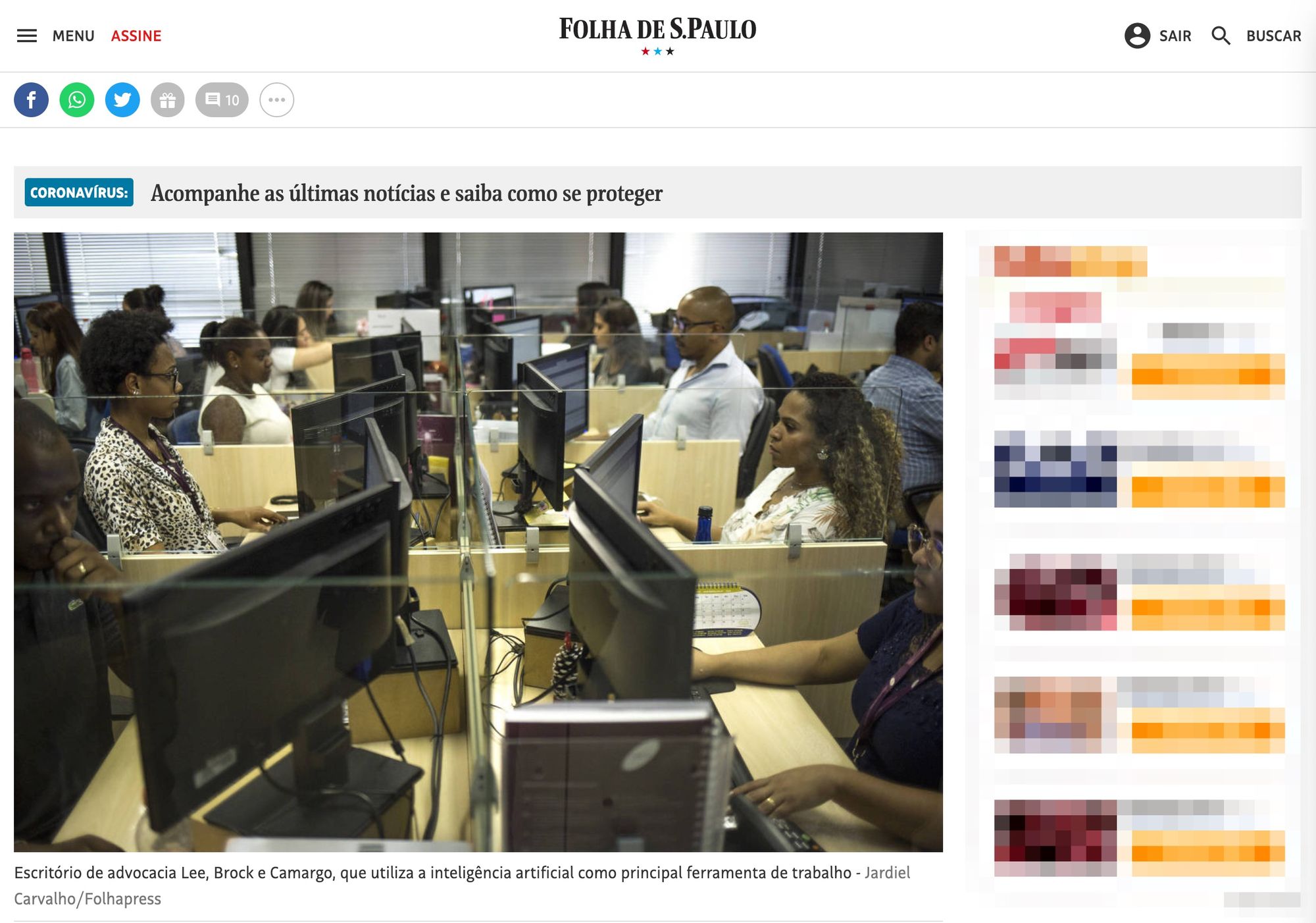AI in Folha de São Paulo: article or publi?
Commentary on the articles of Folha de São Paulo on applications of artificial intelligence in the world of Law.
Folha de São Paulo recently published a series of articles on artificial intelligence. Despite the unusual announcement, the article was not promoted as an advertorial. This is the headline of the article from 02/20/20:

And this is its footer:

That is, it may not even be an advertorial, but it is a sponsored column for sure. This demonstrates that Folha is engaged in an educational activity (commendable), which does not exempt us from considering sponsors when we find some news that is especially interesting to us.
Very well. In this context, Folha also published on 03/10/20: "Artificial intelligence acts as a judge, changes lawyer strategy and promotes intern".

As I don't know if my comment would be authorized in Folha's system, I left here my reading script for the article. I hope that, with these warnings, the article will become more informative about the use of Artificial Intelligence (AI) in Law:
- Folha: "According to the most recent version of "Justice in Numbers" (...), 108.3 million cases began in a digital version from 2008 to 2018." Me: This is not very relevant to AI, since what was transferred to the digital platform was the processing. The records are still normal PDFs, which do not easily provide the kind of data that intelligent systems consume.
- Folha: "Illustration of Diana, the name given to the artificial intelligence program of the law firm Lee, Brock e Camargo Advogados". Me: Really?

Folha: "Macêdo uses the system on a daily basis, named Elis (in the Pernambuco Judiciary)". Me: It's okay that naming things is fun. But do we need another robot in 2020?
Folha: "In the text of the decision itself, it is saying that it was Elis who did it, to allow transparency in the process, so that it is known what is being used." Me: Do you put in the decision what was done in Word or typewriter?
Folha: "According to Juliana Neiva, the court's secretary of Information and Communication Technology, the development of AI had zero cost for the court, as it was developed by the body's own servers." Me: Are the servers zero cost?
Folha: "The STJ wants to go further in the use of technology and reports that the Socrates 2 project is already underway, in which the idea is to move forward so that AI will soon provide judges with all the elements necessary for the judgment of the causes, such as the description of the parties' theses and the main decisions already made by the court in relation to the subject of the case." Me: Is AI the best (or only) way to do this?

Folha: "To deal with this problem, the law firm Lee, Brock e Camargo Advogados (LBCA) developed an application linked to an AI system. The mechanism makes it possible to raise, soon after knowing who the opposing party's deponents are, everything that these witnesses have already said in other processes, says Solano de Camargo, founding partner of LBCA. Me: Does anyone think they need AI for that? Is this really a central problem for a mass litigation firm? Isn't the important thing to know what the witness will say about the facts of that particular case?
Folha: "The firm's AI system was named Diana and has already consumed investments of R$ 3 million in recent years, says Camargo. The cost includes the implementation of an internal technology laboratory that has 41 members." Me: With 41 members, you don't even need artificial intelligence. The whole point of technology is to give more productivity so that you can have small teams.
Folha: "Examples of use: The law firm Lee, Brock e Camargo Advogados (LBCA), in São Paulo, developed an AI system and an application connected to it. The firm's lawyers can open the app during hearings and use the software's analysis to identify, for example, contradictions of a witness while he or she is speaking to the judge." Me: I need to write a post about this.
Folha de São Paulo is a very important newspaper and, in my view, it should be more selective in its publications. It is natural for a newspaper to have advertisers. It is not normal, however, to misinform in this way. It would be very cool for Folha to follow up on the article in a less captured way. Or else it would make it clearer who the advertiser is, otherwise it would become just another page on the internet.
